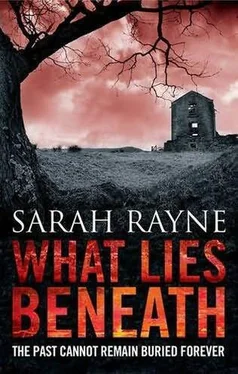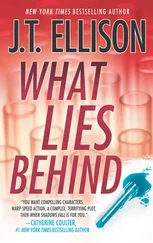‘Oh, no, I can manage,’ said Ella. ‘It’s nice of you to offer, though.’
‘Will you still be able to come to the pictures on Saturday? It’s West Side Story .’
‘Yes, I should think so,’ said Ella. She rang off, considered the frayed cord, then tugged on it as hard as she could. It frayed a bit more, then came partly away from the receiver. At first look it did not seem too bad, but when she lifted the receiver there was no dial tone. Good. Very good indeed.
It was easy to tell her mother she had made the call – the line had been very crackly, she said, but she thought she had got through and left a message for a doctor to call. Oh yes, she had stressed the urgency. Well no, she had not actually mentioned the possibility of appendicitis because they were not sure about that. It might turn out to be just a tummy bug. In the meantime, she would refill the hot-water bottle, and perhaps Mum could try some warm milk with a dash of brandy?
It was eleven o’clock before Ella finally agreed to try phoning again. The message mustn’t have got through, she said. Yes, she would go out to phone again, of course she would.
This time, she walked all the way to the High Street to the phone box near the post office. It took fifteen minutes. She dialled the number of their doctor’s surgery, and there was a series of click and buzzes, which Ella supposed was the call being transferred to whoever was on night duty. When a man’s voice answered, she said she was a bit worried about her mother who was being sick and having a bit of stomach pain. Yes, she looked as if her temperature might be higher than normal. She did not have a thermometer, but her mother was certainly flushed and her skin felt hot.
‘Probably no more than a bug,’ said the voice at the other end. ‘How much of an emergency is it, do you think?’
‘She didn’t want me to call you,’ said Ella. ‘But I said better to be on the safe side.’
‘Give her a good dose of soda bicarbonate or Alka-Seltzer. Something of that kind,’ said the voice. ‘And plenty of fluids. I’ll put her on the rounds for tomorrow morning. But you’d better ring back if it gets worse during the night.’
‘Thank you very much.’
It did get worse. Shortly after 1 a.m. Ella’s mother became delirious. She began to talk about the past, the words pouring out, as if a dam had given way. Ella sat in the little bedroom, helplessly listening, wanting to shout at her mother to stop, because she did not want to hear any of this, she did not want to know about it.
But towards three the torrent of words slowed to a meaningless mumble, and Ella breathed a sigh of relief. She fetched a bowl of tepid water to sponge her mother’s face and neck. The Geranos scars stood out like angry raised lumps, but there were mottled patches between them and Brenda seemed to be having difficulty in breathing. Ella nearly gave in and ran out of the house to hammer on the neighbour’s door, to ask them to call 999 for an ambulance. They were not away, of course, that had just been a delaying tactic. But she did not. She sat it out.
By the time the doctor arrived it was mid-morning and Brenda Ford was deeply unconscious. An ambulance was summoned. Ella, crying real tears by this time, went in the ambulance, carrying a small bag with overnight things.
The bag was brought home unopened. Brenda Ford died that night from sepsis brought on, the doctors believed, by a ruptured appendix. There was a post mortem and an inquest, and everyone was very kind. Veronica’s parents asked Ella to stay with them, and Derek Haywood’s parents asked her to their house for meals or to spend a Sunday.
It was very tragic to lose a mother at such an early age. Everyone said so. What nobody said, because nobody knew, was that it was actually very liberating for Ella. She no longer had to worry about anyone knowing her mother was a murderess. Going through her mother’s papers after the funeral, she consigned everything to the fire. There must be no clues anywhere.
She was over eighteen and legally allowed to inherit the little house outright. Armed with a certificate for 120 w.p.m. shorthand and 60 w.p.m. typing, she got a job in the typing pool at the local education offices. She did not have much money but she had enough. There was a tiny insurance policy on her mother’s life, which helped, and she was able to whitewash all the walls in the house. Derek’s mother gave her some spare bales of curtain fabric.
Eventually Ella and Derek married. Ella sold the cottage and his parents gave them £2,000 as a wedding present towards a better house. Ella kept it spick and span, and everyone said she was a wonderful wife and Derek was very lucky. Life became placid and safe. It stayed that way for a great many years.
Until now. Until Jan Malik found an old newspaper article – an article Ella had not even known existed – and Amy, with the careless impetuosity of youth, started asking questions. It was becoming plain that Amy would have to be watched very carefully.
Three murders, thought Ella. The man from St Anselm’s, Serena Cadence, and Clem Poulter. I committed two of them. My mother committed the third.
For the hundredth time she went over everything she had done, but she could not see that there was anything to trip her up. Clem’s death had been firmly put down as ‘Accidental’ and the file had been closed. Ella did not think the coroner’s verdict was likely to be re-examined. As for the two bodies, the police were said to be going on with their enquiries, but most people seemed to think the case would soon be closed. A man at Derek’s office said ‘Death of two unknown men’ would be the eventual verdict. Derek relayed this information to Ella and Amy.
‘It looks as if the excitement’s all over,’ he said. ‘I don’t think they’ve identified either of the bodies. Probably they were just a couple of tramps who were hiding out in the ruins.’
‘It’ll go down as a Bramley mystery,’ said Amy. ‘People will come on murder weekends and anoraks will try to solve it for years ahead. In about a hundred years’ time there’ll be television programmes, re-examining the evidence and invoking technology we’ve never heard of, and pronouncing who the bodies were.’
‘What an imagination you have,’ said Derek admiringly. ‘Ella, where does she get her ideas?’
‘I don’t know.’
‘Are you both going to Poulter’s funeral? I can get an hour or two clear to come with you. I think I should. I’ve known him since we were all at school. I’d like to pay my respects to the poor chap.’
‘Of course I’m going,’ said Ella. ‘Amy’s coming as well.’
The funeral, which was held at the local crematorium, was a gloomy affair. Veronica said it was difficult to know how to behave, because it was so ghoulish, so utterly outside one’s experience. She could not stop thinking of Clem, happily stirring his fish casserole all by himself that night, planning how he would set the table for the guests who would never come.
When the coffin slid back behind the curtains and the organist struck up the final hymn, Veronica dissolved into a very showy spate of crying, which Ella thought displayed a shocking lack of self-control. Veronica always had to draw attention to herself, though. Several of the men went over to comfort her; Ella was glad Derek was not one of them.
After the service finished some people hung about hopefully, because generally at a funeral somebody would make an informal announcement about all mourners being welcome back at the house or the Red Lion to drink old so-and-so’s health. But for Clem, who had no family, nobody seemed to have taken on this responsibility. Ella was annoyed with herself for not having thought of it; she could have put on a very nice little buffet lunch – Amy could have helped – and Derek could have taken an extra hour from the office to hand round glasses of wine.
Читать дальше












